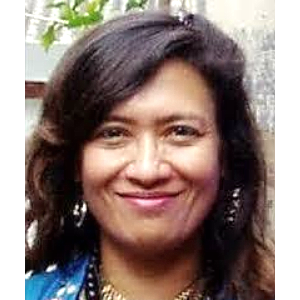
By Mariam Mokhtar
This is not the first time that the poor and those who fall on bad times, slip through the cracks and are unable to seek help. When something like that happens, one wonders: Is the system failing the people? Or are people failing to look for assistance in the right places?
Yesterday, it was reported1 that for the past four months, a 30-year-old woman and her six children had been living in a car, parked near a petrol station in Hulu Selangor. She and her children, who range from five months, to 14 years, had to leave their flat, as she was unable to pay the rent.
The woman lost her job when her employer was unable to continue his business during the Movement Control Order (MCO).
To make things worse, she has cancer, and three of her children are sick and need hospital treatment. She is in the middle of divorce proceedings, from her husband, who has not returned home, for the past four months.
Two days ago, things must have got really desperate, as the woman, who wants to remain nameless, contacted social activist2, Kuan Chee Heng, who is also known as "Uncle Kentang".
Kuan went to the petrol station to check on her, before lodging a police report, so that she would be able to source help from government agencies.
He also gave her some money, and made arrangements to repair the air-conditioner in her car.
Before long, the woman's plight was shared on Twitter by the Selangor Zakat Board, and various NGOs, which also reached out to her.
Is there something wrong with our social welfare system, as people who need help, are unable to find it easily? This woman had to seek the help of a social activist.
Is there something wrong with the Islamic Department of the state, if people who are in need, do not know that zakat funds are available to provide them with financial assistance?
Who do you fault? The general public for not trying hard enough to find aid? Or the various government departments who claim that they have various social assistance programs to help the poor? What use is funding, if no one is aware it is available? Shouldn't the agencies be reaching out, instead of allowing the poor to suffer in silence?
Once the poor's plight is made public, there is a rush from various NGOs and government departments to offer assistance. Are these institutions publicity hungry?
Are they driven by remorse because they did not do more to empower the poor?
Are they unable to realize that something must be wrong, if the people who need help, have to contact social activists in desperation, to highlight their suffering?
What about the syariah system? Why did the woman not seek help from them? Few are aware of the suffering and plight of the many Muslim single mothers.
Abandoned by their former husbands, they struggle to feed themselves and their children. Many women have felt abandoned by the syariah courts. Cases take too long and cost money. When she has to appear in court, the husband does not bother to turn up and so a new date has to be set. Whilst she is at court, she has to leave her children in child care. If she is working, she has to take unpaid leave. Few employers like disruption to their business.
Even when the divorce goes through, and the former husband must pay alimony and maintenance for the children, many single mothers claim that they receive no money, because enforcement is poor.
Frequently, these women, who often married young, and therefore have no education and lack skills, struggle to find work. They are the hardest hit. Many have to keep two or three jobs just to earn enough money to feed themselves and their children.
This incident of the woman and six children in a car, is not the first time members of the non-Muslim community, have come to the aid of a Muslim.
Questions must go through the mind of many Muslims; "Why can't a Muslim easily access help from a Muslim agency? Why does a Muslim in need, find it easier to seek help from a non-Muslim?"
I say this, because in the coronavirus pandemic, various former residents of state run orphanages, who are deemed stateless by the authorities, have told me, that they are unable to get help and food parcels, from the mosques because the bureaucracy is stifling. It is not their fault that they do not have the relevant documents.
This woman's story is all too common, but it is largely left untold, because it embarrasses the family, the community and our institutions. In other words, many people do not want to know. Where is the political will, to address issues like this?
Source:
1. MalaysiaKini: Single mum with six kids forced to live in car for months
2. Facebook: Kuan Chee Heng
3. Free Malaysia Today: Plight of stateless people during MCO
(Mariam Mokhtar is a Freelance Writer.)
ADVERTISEMENT
ADVERTISEMENT


































